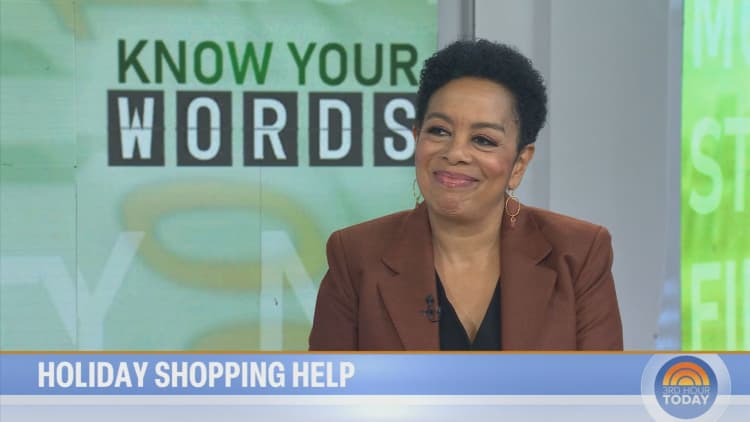A great credit score can be important, but improving that number isn't always easy.
Nearly 4 in 5 Americans say they're trying to improve their credit score, according to a recent NerdWallet survey. But 50% say they face barriers toward improvement, namely a low credit limit. The website polled more than 2,000 adults in the U.S. in September.
Increasing your credit score can grant you greater access to new opportunities, such as the ability to rent an apartment or buy a home, or get utilities, experts say. (In some instances, those entities may look at your credit report rather than your score.)
"As long as you hit that good-to-excellent range, doors will open," said Sara Rathner, a credit cards expert at NerdWallet.
'Utilization can definitely affect your credit in a big way'
Among cardholders trying to improve their credit score, 15% say that having a low credit limit is a roadblock, according to NerdWallet's report.
One of the factors that goes into calculating your credit score is credit utilization, or the percentage of the total available credit that you use in any given month, said Rathner. A low credit limit means even small purchases can result in high utilization.
"Credit utilization can definitely affect your credit in a big way," said Ted Rossman, credit card specialist and senior industry analyst at Bankrate.

For instance, if you have a $1,000 credit limit, and you spend $500 a month on that credit line, your credit utilization is 50%.
A rule of thumb is that you should have a credit utilization of 30% or lower, but that can be hard to achieve when you have a low credit limit, Rathner said.
If you have that $1,000 credit limit, $300 doesn't go that far, she said: "That's a few grocery bills right there."
There are ways for you to increase a credit line: First, you can ask your credit card issuer and see if you're eligible for a boost, Rathner said.
If your income has increased, update your account with your current salary; it could "make you eligible for a credit limit increase," she added.
Some experts also recommend paying your balance ahead of your statement closing date, because that's when the lender reports your balance to the credit bureaus.
"Make an extra mid-month payment; knock that statement balance down before it even comes out," said Rossman. "That will help your utilization ratio, but it also helps if you're carrying debt."
Applying for a new card can increase your available credit overall; while doing so slightly lowers your score, that drop is only temporary.
Yet, sometimes "it's easier said than done to get a new credit card or get a higher limit," Rossman said.
Many worry they'll hurt their score in the next year
Average credit scores are hitting record highs. The national average credit score is now 718, up two points from a year ago, according to a report from FICO, developer of one of the scores most widely used by lenders.
Despite those wins, 58% of Americans are worried they'll hurt their credit score in the next 12 months, the NerdWallet survey found.
"Makes me wonder what are people planning on doing with their credit," said Rathner, "or is it because ... they've been hurt in the past and that fear is being carried forward."
Amid high inflation and interest rates, people are falling delinquent on credit card payments as well as more subprime auto delinquencies, said Rossman. In the NerdWallet survey, 14% of respondents say not being able to make debt payments is a roadblock to improving their score, while 13% point to not being able to make credit card or loan payments on time as an impediment.
"When people say they're afraid their score is going to go down, it's probably because they're worried about their finances, they feel like they're going to pay late, or they have more debt than they are comfortable with," he said.

About 28% of respondents fear they will hurt their score by taking on too much debt and 24% worry about missing a credit card payment, NerdWallet found.
While there are misconceptions as to how credit scores are calculated and variations among multiple scores, it's helpful to remember cardholders have some agency, Rathner said.
"It's very tempting to turn your credit score into some sort of score for how you are doing as a person, as an adult," said Rathner. "If you're struggling with a low credit score, it's not because you're a bad person, it's because your situation has been tough."






